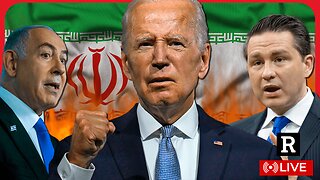Premium Only Content

Confucianism: Philosophical Principles of an Ancient Wisdom and its Influence Today
Read full article here:
https://spiritualseek.online/blog/confucianism-historical-background-core-ideas-and-influence-today/
---------------------------------
Excerpt from the original article
The Interconnectedness of Individuals and Society
Confucianism posits a holistic view of existence where individual actions resonate within the broader fabric of society. Central to this philosophy is the belief that personal virtue and social harmony are inextricably linked. In this sense, Confucianism can be seen as a social contract, fostering a sense of responsibility among individuals to enhance communal welfare. The interplay between individual and collective well-being is highlighted by the saying: The virtue of a man is like a tree; it encompasses the sky and earth, and all beings from it derive nourishment.
The Influence of Education
Confucius championed the value of education and self-cultivation as means of personal and societal improvement. He believed that through learning, one can refine one’s character, leading to ethical behavior that uplifts society. This educational ethic is encapsulated in his assertion: Learning without thought is labor lost; thought without learning is perilous. Thus, Confucianism positions education not merely as an acquisition of knowledge but as a transformative process pivotal to moral development.
Ritual as a Means of Connection
Ritual, or “li”, serves as a conduit through which individuals connect to their heritage and to one another. Confucian rituals are imbued with meaning; they shape identities, reinforce social hierarchies, and promote ethical behavior. For instance, traditional familial rituals ensure the continuation of respect through generations, thus intertwining personal and collective memory. Confucian rituals resonate deeply in the cultural practices of communities, reinforcing familial and social ties even in contemporary society.
Confucianism and Taoism
While Confucianism emphasizes structured social relationships, ritual, and moral ethics, Taoism (or Daoism) offers a contrasting perspective focused on naturalness, spontaneity, and the cosmos. Confucius often referred to li and societal roles, suggesting that order derives from human effort, while Taoism advocates for alignment with the Tao (道), suggesting that harmony arises from understanding and flowing with the natural order of the universe.
Despite these differences, the two traditions can be seen as complementary. For instance, the Taoist appreciation of the cycles of nature can enhance Confucian social ethics, suggesting that understanding the natural world is essential for moral governance. As such, they provide a balanced approach to life, with Confucianism offering a practical framework for social order and Taoism providing philosophical insights into the nature of existence.
Confucianism and Buddhism
The introduction of Buddhism to China during the Han dynasty (206 BCE–220 CE) sparked a dynamic interplay with Confucian thought. While Confucianism remains grounded in social ethics and this-worldly concerns, Buddhism emphasizes spiritual transcendence and the quest for enlightenment. However, over time, elements of both traditions have intermingled, leading to the establishment of Neo-Confucianism during the Song dynasty (960–1279 CE), wherein Buddhist concepts of meditation and metaphysics were integrated into Confucian thought.
For example, while Confucianism focuses on ethical conduct in social relations, Buddhism introduces notions of compassion and mindfulness that enrich the Confucian worldview. The fusion of the two traditions can be observed in the works of Neo-Confucian philosophers like Zhu Xi, who integrated Buddhist metaphysical insights with Confucian ethics, thus expanding the depth and relevance of Confucian thought.
Confucianism and Western Philosophy
Confucianism also shares parallels with certain strands of Western philosophical thought. The emphasis on virtue ethics and moral character resonates with Aristotelian philosophy, which posits that the good life is achieved through the cultivation of virtues. Both traditions underscore the importance of ethical behavior and the development of moral character as central to achieving a fulfilling life.
However, Confucianism distinguishes itself through its communal orientation, wherein individual morality is intrinsically linked to familial and societal harmony. The individual’s moral journey is thus framed not solely as a personal aspiration but as a collective endeavor, marked by an inherent relationality absent in many Western philosophies. In the contemporary discourse on ethics, Confucianism provokes debates about individualism versus collectivism as societies grapple with the implications of globalization and social interdependence.
-
 2:04:11
2:04:11
Melonie Mac
8 hours agoGo Boom Live Ep 32! Soul Reaver Remastered!
46.4K9 -
 39:11
39:11
Sarah Westall
6 hours agoDigital Slavery and Playing with Fire: Money, Banking, and the Federal Reserve w/ Tom DiLorenzo
56.4K4 -
 1:38:38
1:38:38
2 MIKES LIVE
10 hours ago2 MIKES LIVE #157 ILLEGALS, PROTESTORS AND DRONES!
38K1 -
 1:01:03
1:01:03
LFA TV
1 day agoTHE LATEST SPENDING BILL IS AN ABOMINATION! | UNGOVERNED 12.18.24 5pm EST
40.4K38 -
 1:43:34
1:43:34
Redacted News
9 hours agoBREAKING! WARMONGERS PUSHING TRUMP TO LAUNCH PRE-EMPTIVE WAR WITH IRAN | Redacted News
151K272 -
 1:00:26
1:00:26
Candace Show Podcast
9 hours agoPiers Morgan x Candace Owens | Candace Ep 123
93.3K257 -
 2:06:51
2:06:51
Darkhorse Podcast
12 hours agoFollow the White Rabbit(s): The 256th Evolutionary Lens with Bret Weinstein and Heather Heying
65K27 -
 3:08:08
3:08:08
Scammer Payback
9 hours agoCalling Scammer Live
38.1K3 -
 1:21:25
1:21:25
Mally_Mouse
12 hours agoLet's Yap About It - LIVE!
86K10 -
 5:35
5:35
Cooking with Gruel
1 day agoMaking Fresh Salted Caramel
69.2K7